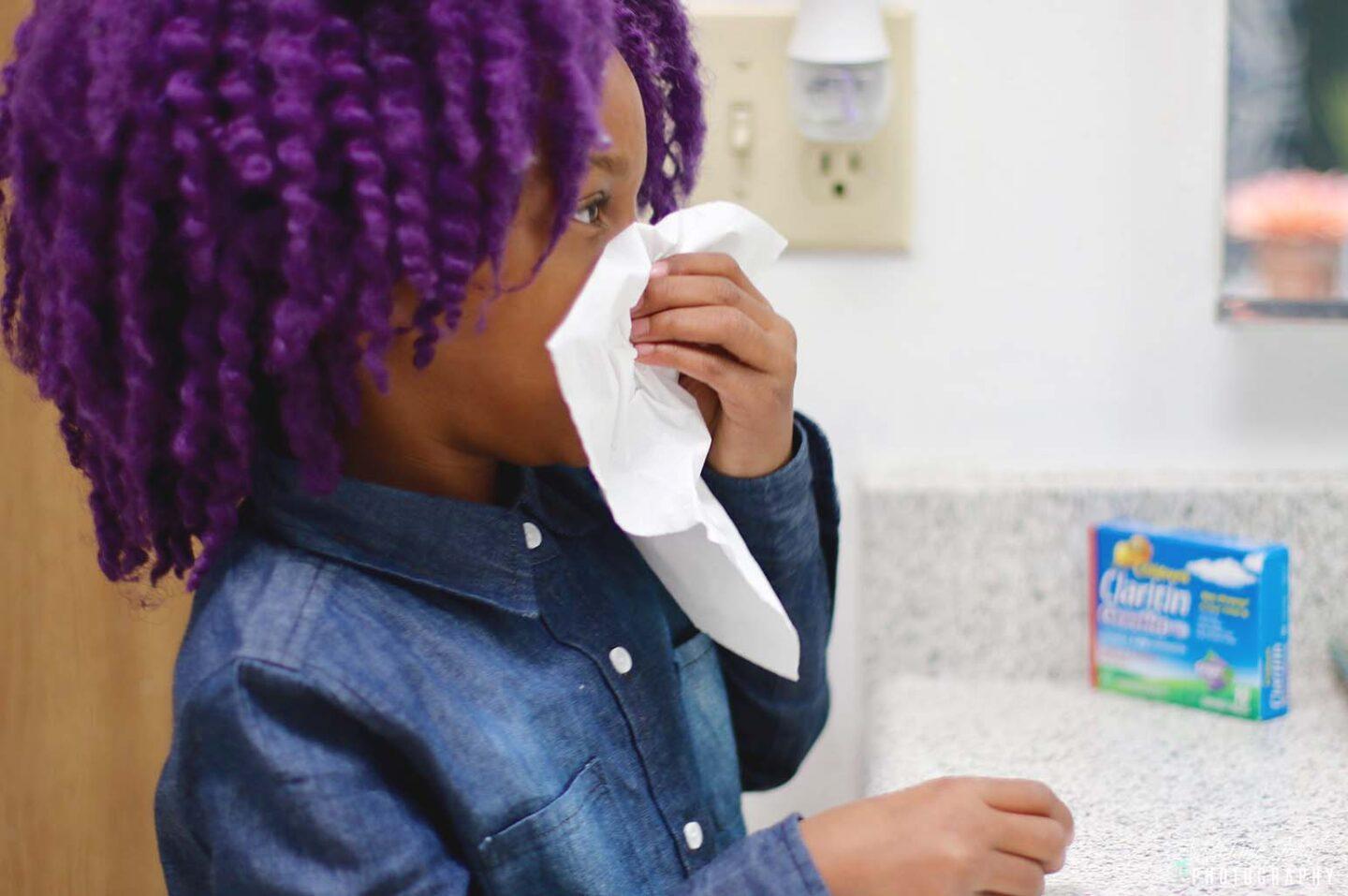How do you beat seasonal allergies? There are many things that can trigger seasonal allergies, but there are also many ways to fight back!

Every year, spring rolls around, and every year people suffer from allergies. Trees, pollen, and dust are just a few of the many culprits that can cause your nose to run and your eyes to water. Seasonal allergies can be a pain, but there are ways to lessen the symptoms. Try some of these tips and tricks and make springtime a little more bearable!

Avoid Outdoors When Pollen Count is High
Try to avoid being outdoors when pollen counts are high, which is typically in the early morning or late evening. If you must go outside, wear a mask or scarf over your nose and mouth. And when you come back inside, take a shower and wash your hair to remove any pollen that may be clinging to you.
Dry Your Clothes Indoors
Hang your clothes to dry indoors instead of outdoors. Pollen can collect on your clothing when you hang it outside and then transfer into your home, exacerbating your allergies.
Keep Windows Closed
Keep your windows closed at home and in the car to prevent pollen from coming inside. And if possible, use an air conditioner instead of a fan, which can circulate pollen around the room.
Filter the Air
If you have central air conditioning, you have allergies, it’s important to change your air filters more frequently than usual. This will help to remove pollen and other allergens from the air in your home. And consider investing in an air purifier, which can help remove allergens from the air.
Use a Dehumidifier
If you suffer from indoor allergies, try using a dehumidifier. Allergens like dust mites thrive in humid environments, so by keeping the air in your home dry, you can reduce the number of dust mites and improve your allergy symptoms.
Opt for Hardwood Floors
If you’re looking to renovate or build a new home, opt for hardwood floors instead of carpet. Carpet is a breeding ground for dust mites, so by avoiding it you can reduce the amount of allergens in your home.
Clean Regularly
Make sure to clean regularly, dusting and vacuuming often to remove any pollen that’s made its way into your home. And don’t forget to change your furnace and air conditioner filters frequently as well.
Keep Windows Closed
Keep your windows closed at home and in the car to prevent pollen from coming inside. And if possible, use an air conditioner instead of a fan, which can circulate pollen around the room.
Wash Bedding Regularly
Pollen can collect on your bedding, so be sure to wash sheets, pillowcases, and blankets weekly in hot water. You should also vacuum your mattress and pillow to remove any dust or pollen that may be there.
Try Natural Remedies
There are many natural remedies that can help to relieve allergy symptoms. Local honey, for example, can help to desensitize your body to pollen if taken regularly. And apple cider vinegar has anti-inflammatory properties that can help to reduce congestion.
Stay Hydrated
Drinking plenty of water helps thin mucus, which can flush out allergens and irritants. Avoid drinks that can dehydrate you, like coffee, alcohol, and soda.
Use a Saline Rinse
A saline rinse is a safe and effective way to cleanse your nose of pollen and other allergens. You can make your own saline solution at home or buy a pre-made one at the store. Simply mix it with lukewarm water and use it to rinse your nose.
Opt for Local Honey
If you suffer from seasonal allergies, try taking a teaspoon of local honey daily. This can help to desensitize your body to pollen and reduce your allergy symptoms. Eating honey that is produced locally can help build immunity to the pollen in your area. Start with a small amount and gradually increase it over time.
Take Allergy Medications
If home remedies don’t seem to be working, talk to your doctor about allergy medications. There are both over-the-counter and prescription options available. Antihistamines like Claritin and Zyrtec are typically very effective in reducing symptoms like sneezing, itching, and watery eyes. You may also want to try a nasal spray like Flonase or Nasacort to help reduce congestion.
See an Allergist
If you’ve tried all of these tips and tricks and are still suffering from allergies, it may be time to see an allergist. They can help to identify your triggers and come up with a treatment plan that works for you.
Read Also: Understand and Manage Children’s Allergies

In Conclusion:
Seasonal allergies can be a real pain, but there are things you can do to lessen your symptoms. From home remedies to medications, there are many options available to you. Talk to your doctor about what might work best for you and try out different tips and tricks until you find something that helps.
Seasonal allergies don’t have to ruin your spring. So next time pollen counts are high or you’re feeling congested, try out some of these tips and enjoy the warmer weather!
